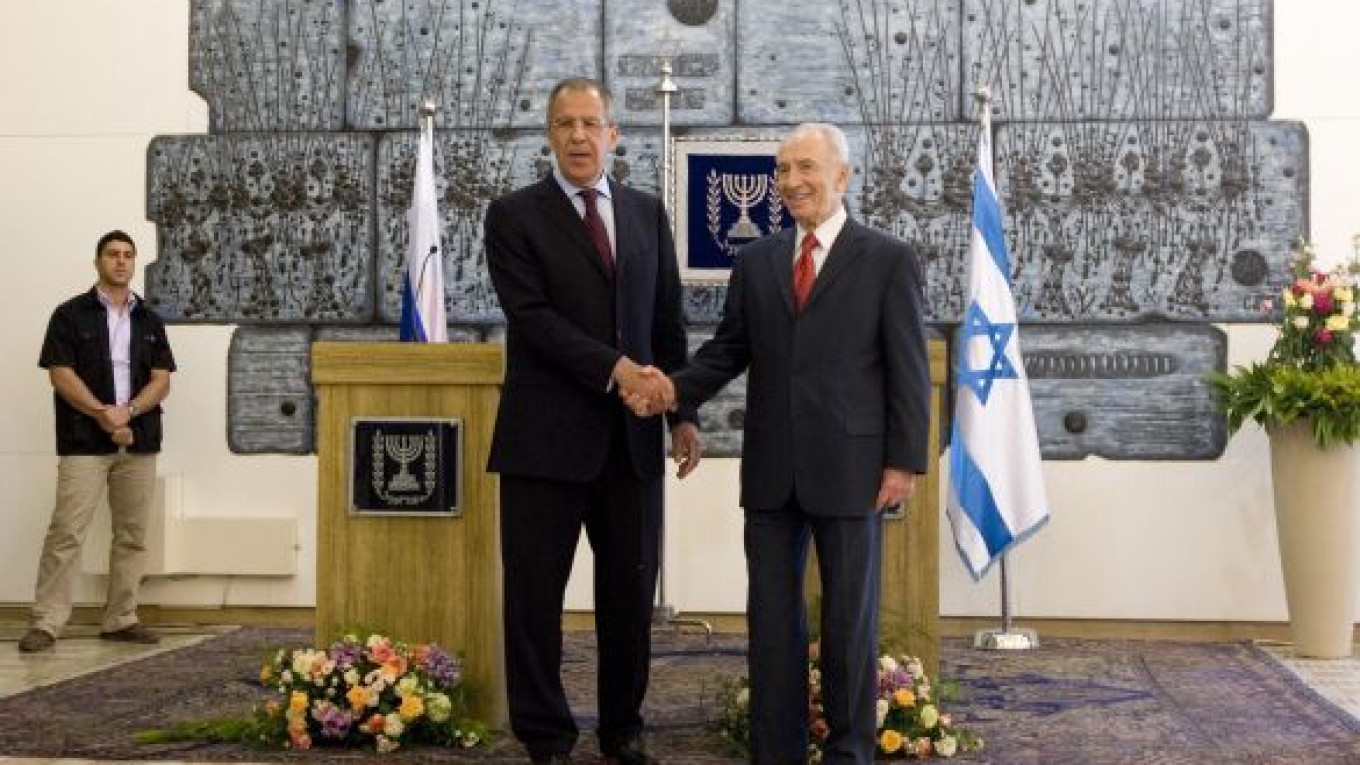Russia and the United States have offered to hold talks with Iran on the provision of nuclear fuel for its Tehran medical reactor, Foreign Minister Sergei Lavrov said Tuesday.
Iran wants to enrich uranium to the 20 percent concentration needed for a reactor because it hasn’t been able to get imported fuel, Lavrov told reporters in Jerusalem.
Iran said Tuesday that it would continue to enrich uranium to 20 percent for the reactor, though only when needed. The United Nations
Security Council on June 9 imposed a fourth round of sanctions on Iran over its nuclear development.
“I very much hope that Iran will agree to this and this will give an opportunity to prevent the deterioration of the situation,” Lavrov said.
Russia and the United States consulted the UN’s International Atomic Energy Agency before proposing the negotiations, which are aimed at eliminating the need for Iran to enrich its own uranium, he said.
The Security Council left open the possibility of diplomatic talks to resolve the impasse over Iran’s nuclear program after imposing the latest sanctions. Iran rejects allegations that the atomic work may be hiding a weapons program, saying the technology is for civilian purposes such as power generation and the production of medical isotopes. It has rebuffed Security Council demands to suspend uranium enrichment.
“The fuel of 20 percent concentration has a specific use,” Iranian Foreign Minister Manouchehr Mottaki said, the state-run Islamic Republic News Agency reported. “We will produce it when we need it, and will stop production when we don’t.”
Lavrov on Tuesday defended Russia's policy of openly engaging with Hamas militants, unlike other partners in the Middle East Quartet — the United Nations, European Union and United States, Reuters reported.
"In all our talks with Hamas, we have tried to convince them to switch to the political track and support the Arab peace initiative," Lavrov said.
A Message from The Moscow Times:
Dear readers,
We are facing unprecedented challenges. Russia's Prosecutor General's Office has designated The Moscow Times as an "undesirable" organization, criminalizing our work and putting our staff at risk of prosecution. This follows our earlier unjust labeling as a "foreign agent."
These actions are direct attempts to silence independent journalism in Russia. The authorities claim our work "discredits the decisions of the Russian leadership." We see things differently: we strive to provide accurate, unbiased reporting on Russia.
We, the journalists of The Moscow Times, refuse to be silenced. But to continue our work, we need your help.
Your support, no matter how small, makes a world of difference. If you can, please support us monthly starting from just $2. It's quick to set up, and every contribution makes a significant impact.
By supporting The Moscow Times, you're defending open, independent journalism in the face of repression. Thank you for standing with us.
Remind me later.


